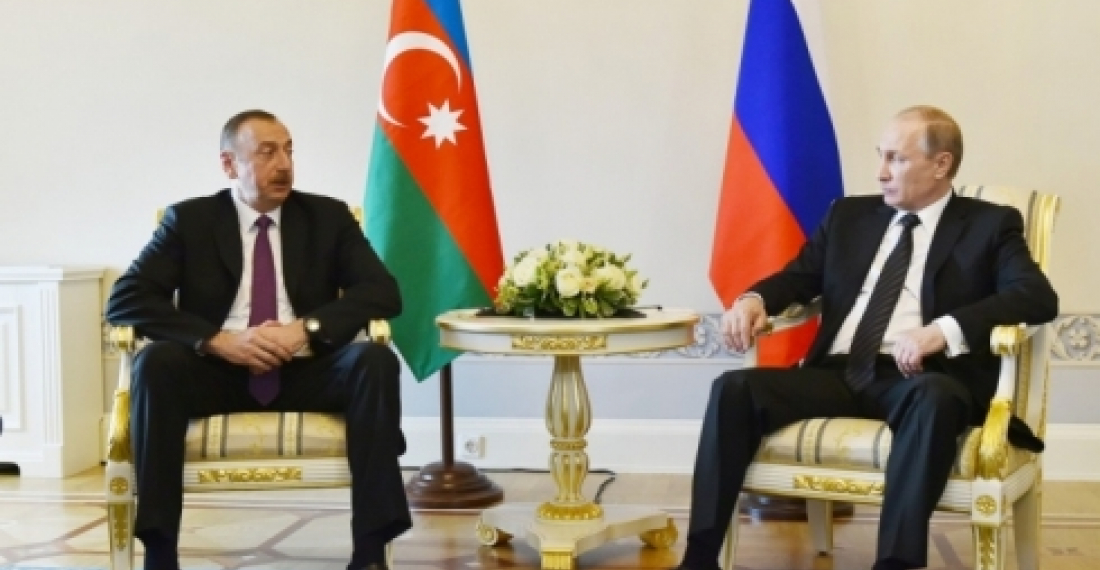Azerbaijani president Ilham Aliyev met with his Russian counterpart in St Petersburg on Monday, ahead of a trilateral meeting with the Armenian president later in the day.
“As stated by Russia and other OSCE Minsk Group co-chairs, the status quo is unacceptable,” said President Aliyev, according to Trend news agency. “We fully support these statements, but in order to change the status quo, it is necessary to start de-occupation of Azerbaijani territories which have been under occupation for over 20 years.”
Earlier in the day, Putin met individually with Armenian president Serzh Sargsyan. The meeting between the three presidents later in the day will be the first meeting between Sargsyan and Aliyev since May 16, when a summit was held in Vienna.
Putin acknowledged recent economic difficulties between the two nations. “Problem we’ll discuss today is the Nagorno Karabakh conflict. However, taking advantage of our meeting, I want to speak about bilateral relations. Unfortunately, we are witnessing decline in trade turnover due to known reasons”, he said. “The trade turnover declined due to the fact that prices of energy carriers dropped and difference between national currencies”.
SOURCE: commonspace.eu and agencies
PHOTO: Putin and Aliyev, image courtesy of APA.az






